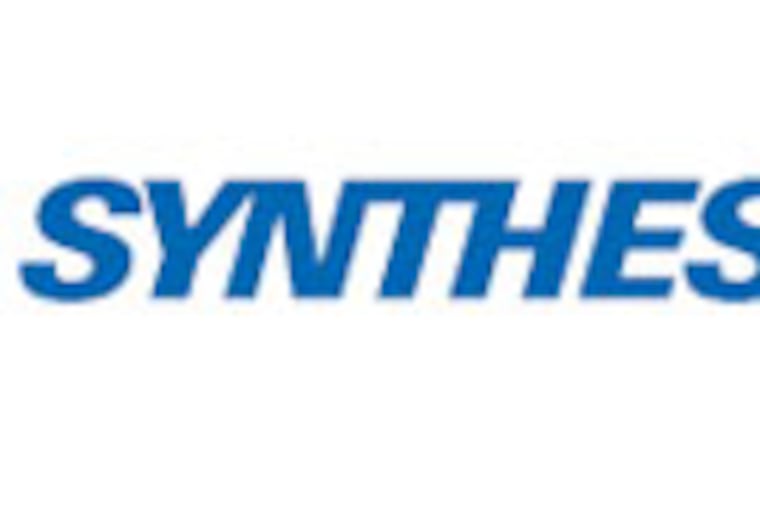Indictment says W. Chester firm tested cement on patients
A Swiss company with major operations in West Chester illegally tested its bone cement on about 200 people, three of whom died, according to a 52-count indictment issued yesterday by the U.S. attorney in Philadelphia.

A Swiss company with major operations in West Chester illegally tested its bone cement on about 200 people, three of whom died, according to a 52-count indictment issued yesterday by the U.S. attorney in Philadelphia.
Synthes Inc., a producer of orthopedic products that employs about 1,400 in Chester County, did not tell any of the patients that they were participating in experimental surgeries, the indictment said.
Federal prosecutors also accused Synthes executives of lying to the U.S. Food and Drug Administration about whether they had tested the product for uses that the agency had not approved.
"What they did here was pervert the FDA's process," U.S. Attorney Michael Levy said at a news conference yesterday.
The FDA had approved Norian XR to fill bony voids or defects in some parts of the body, but not in the spine. The agency insisted that Synthes conduct clinical trials, which are lengthy and expensive and require FDA oversight, if it wanted to expand the uses of Norian XR to treat spinal fractures.
But, a company executive identified in the indictment as "Person No. 7" decided not to conduct clinical trials. Instead, the person said the company should "get a few sites to perform 60-80 procedures and help them publish their clinical results," according to the indictment.
The report never explicitly identifies "Person No. 7," but says he was the chief executive officer and a large shareholder. A company spokesman identified Hansjörg Wyss as the CEO while the tests occurred.
Forbes Magazine lists Wyss, a Swiss citizen, as a West Chester resident and the Philadelphia area's wealthiest person, with a net worth of $5.7 billion. Last year, Wyss gave the largest amount from a single source in Harvard University's history when he donated $125 million to create a bio-engineering institute.
Wyss, 74, is a skier. According to Forbes, he led Synthes for 30 years "to the fore of medical technology." He also heads the Wyss Foundation, which gives scholarships to students getting master's degrees in conservation. He owns a 900-acre ranch and vineyard in California.
Wyss owns about 40 percent of outstanding Synthes stock. The company, which had about $805 million in first-quarter sales this year, specializes in orthopedic devices, including plates and screws.
The federal indictment also alleges that a doctor told "Person No. 7" that because vertebral fractures were such a common problem, the company needed to pay for FDA-supervised trials conducted by investigators independent of Synthes.
Wyss was not available for comment. In a statement yesterday, the company said, "Synthes has fully cooperated with the government's investigation, which began in 2006, and believes that its marketing practices in connection with Norian XR were proper. The company intends to vigorously defend itself against the charges."
Instead of conducting trials with FDA oversight, Synthes executives convinced about 50 surgeons to test Norian XR in people with spinal fractures. Synthes sales representatives often were in the operating room during the surgeries, including those where patients died, prosecutors said.
When company executives began these surgical tests in 2002, they knew that Norian XR caused blood clots in test tubes and that clots became lodged in the lungs in tests with pigs, the indictment said.
Synthes continued the experimental surgeries even after two patients died on the operating table, prosecutors said. The company stopped the tests after a third patient died in January 2004. Federal prosecutors said the cause of the deaths was hypotension, a rapid drop in blood pressure, but they could not determine what role, if any, Norian XR played.
The company stopped selling the product in 2004.
Prosecutors did not name the doctors, patients or medical facilities where the surgeries took place. Two patients died in Northern California, and the third in Texas, but federal officials did not name the cities.
The indictment charges Synthes subsidiary Norian Corp. with 52 felony counts, including conspiracy to impair and impede FDA functions and making false statements in connection with an FDA inspection.
The U.S. Attorney's office did charge four Synthes executives, Michael D. Huggins, Thomas B. Higgins, Richard E. Bohner, and John J. Walsh with one misdemeanor charge related to the labeling of Norian XR.